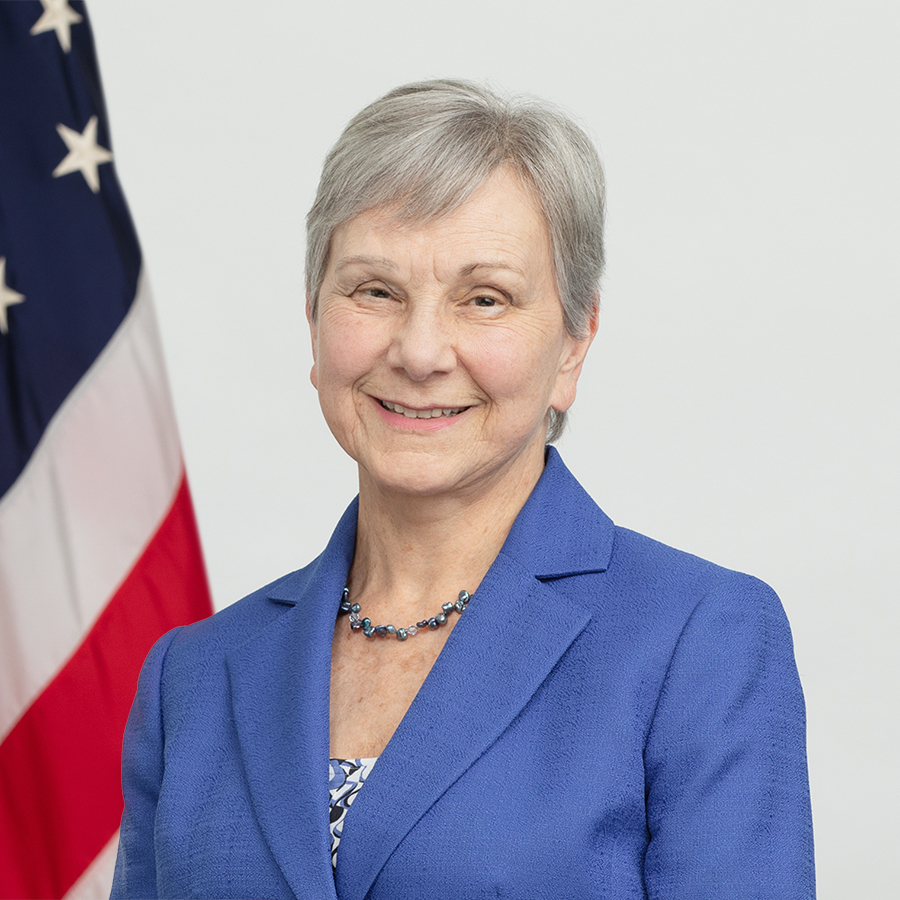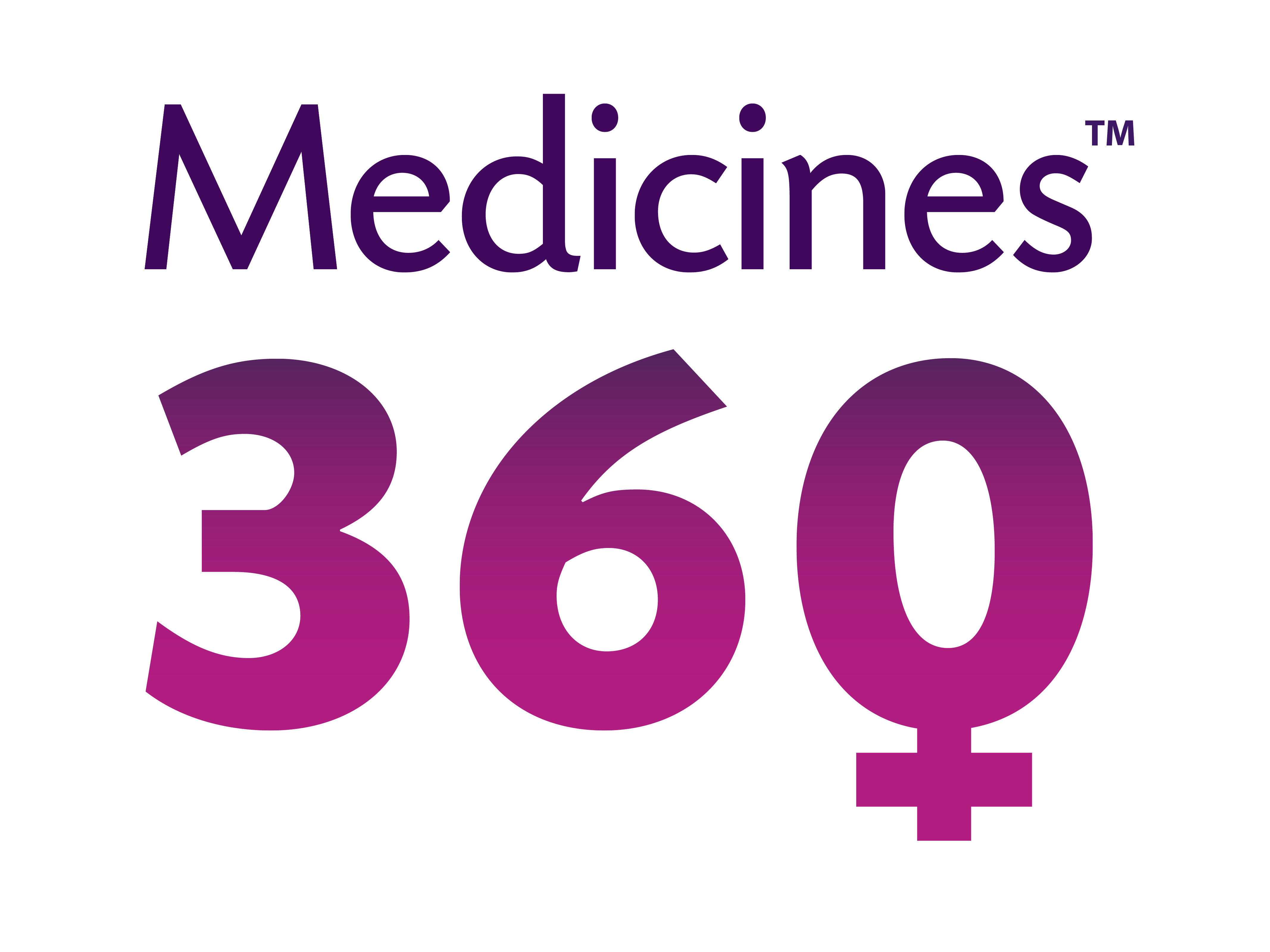RISE UP for Breast Cancer – “Ideas to Implementation" Award (I2I Award)
Winners of the 2024 RISE UP for Breast Cancer Ideas to Implementation (I2I) Award:
Dr. Stephen Birrell: Dr. Stephen Birrell, MD, PhD, FRACS, has dedicated his career to developing hormonal therapies for the prevention and treatment of breast cancer. A surgical oncologist and molecular endocrinologist trained in the USA and the United Kingdom, Dr. Birrell resides in Australia. He has led some of the largest breast cancer clinics in Australia and established a long-standing collaboration with Professor Wayne Tilley, founder of the Dame Roma Mitchell Cancer Research Laboratories at the University of Adelaide, where Dr. Birrell is an affiliated academic. This partnership has resulted in seminal publications in prestigious journals such as Nature and Nature Medicine. Dr. Birrell played a pivotal role in establishing population-based breast cancer screening in South Australia. He also founded three biotech companies, including Havah Therapeutics, which recently relocated from Australia to the USA. His research and innovations have led to over 30 patents, one of which is currently being utilized in the Recast DCIS trial. Dr. Birrell is presently focused on establishing a treatment center in Melbourne, Australia, dedicated to managing reproductive hormonal function in ethnic Chinese women, who have a higher propensity for early-onset breast cancer.
Jennifer Johnson: As a dynamic leader in digital healthcare and business operations, Jennifer Johnson brings several years of experience leading multidisciplinary teams, driving operational excellence, and implementing data-driven strategies to improve health outcomes and address disparities. Her passion for advancing health equity and promoting diversity, equity, and inclusion in healthcare stems from her personal journey as a triple-negative breast cancer survivor. She is the CEO and founder of JennJ Health, a consulting company dedicated to ensuring everyone has access to comprehensive and equitable healthcare. Their flagship product, FitnessCan, is an innovative app designed to enhance health outcomes through fitness. Beyond her professional endeavors, she is deeply committed to community health advocacy. She serves as co-chair and Community Health Advocate for Priceless Gemz, a non-profit organization that empowers women to take charge of their health and advocates for early detection and timely treatment of diseases. With a proven track record of driving change and innovation, she is poised to take on leadership roles in technology and business operations to continue making a meaningful impact in the healthcare industry.
Dr. Erin Giles: Dr. Giles is an Associate Professor at the University of Michigan School of Kinesiology, and a member of the Rogel Cancer Center. Her research is focused on understanding the mechanisms by which obesity promotes postmenopausal breast cancers. Her lab uses preclinical models and collaborate with clinical researchers to study how obesity and menopausal weight gain contribute to tumor development, survival, and growth, and identifying interventions (lifestyle and pharmacological) that can be used to decrease this risk. Learn more about Dr. Giles and her team by visiting their website: https://cancer.kines.umich.edu
Dr. Martin Widschwendter: Martin Widschwendter is a gynaecological oncology surgeon who studies DNA methylation and its role in the development and detection of women’s cancers. He is a Professor at University College London, Director of the European Translational Oncology Prevention and Screening in Hall-in-Tirol, University of Innsbruck, Austria, and Guest Professor at the Karolinska Institutet. He was awarded the Tirolean Verdienstkreuz (Order of Merit) in 2018 and became a Fellow of the Royal College of Obstetricians and Gynaecologists in 2016. With major research funding from the European Commission (FP7, H2020 and a European Research Council Advanced Grant), Land Tirol and UK-based charity The Eve Appeal (eveappeal.org.uk), Martin’s research generates new knowledge on the role of epigenetics in cancer development and prevention, and on the use of epigenetics for cancer risk prediction.
Winning Proposals for the 2024 RISE UP for Breast Cancer Ideas to Implementation Award:
Dr. Stephen Birrell: This RISE UP Ideas to Implementation grant proposal explores a novel approach to breast cancer prevention by targeting androgen receptor (AR) signaling in the breast ecosystem, aiming to reduce cancer risk for both estrogen receptor-positive (ER+) and ER-negative breast cancers. Leveraging a unique female-tailored implant that delivers a low dose of testosterone combined with an aromatase inhibitor (T+Ai), the research seeks to restore hormonal balance in cancer-prone tissues. The study includes mechanistic investigations, patient-derived models, and cutting-edge genomic and proteomic technologies to evaluate the impact of this intervention on biological markers such as MRI background parenchymal enhancement (BPE), a modifiable biomarker of breast cancer risk. Ultimately, the project aspires to provide proof-of-concept for this precision prevention strategy, paving the way for clinical trials and a broader, well-tolerated alternative to existing prevention options with global translational potential.
Jennifer Johnson: FitnessCan provides tailored fitness plans designed to accommodate the specific needs and limitations of cancer patients. This can help improve strength, stamina, and overall physical recovery, reducing fatigue and enhancing the quality of life during and after treatment. The app offers tools for gradual, safe physical activity, which can aid in the rehabilitation process, helping patients regain mobility and physical function lost during treatment. FitnessCan empowers cancer patients to take control of their own recovery process, fostering a sense of autonomy and confidence in their ability to manage their health. FitnessCan seamlessly integrates physical fitness and community support, providing users with a well-rounded approach to health that goes beyond just exercise. The app offers real-time tracking of physical activities, health metrics, and treatment plans, giving users actionable insights to maintain and/or improve their health and well-being.
Dr. Erin Giles: Women with obesity have increased risk and poor outcomes associated with breast cancer. Weight loss through traditional lifestyle approaches using diet and exercise can reduce cancer risk and improve outcomes, but this is difficult for most people. The FDA approval of a new class of incretin-mimetic drugs for weight loss has been revolutionary. However, despite their overwhelming success, not all patients see the same level of response to these agents. Thus, the goal of the current project is to further understand the role of these weight-loss drugs on biomarkers of cancer risk, and to identify biomarkers to help predict patients most likely to achieve weight loss at levels would be sufficient to decrease their breast cancer risk. With the RISE UP Ideas to Implementation Award, this project has the potential to revolutionize cancer prevention approaches for this large portion of the population who are at increased risk of breast cancer.
Dr. Martin Widschwendter: Our preliminary data from both humans and mice point to progesterone receptor antagonists, such as mifepristone, as a promising class of drugs for primary prevention. We have started to develop epigenetic risk classifiers – both in the at-risk breast tissue and in epithelial easy-to-access cervicovaginal and buccal samples. Our data demonstrate that these classifiers are able to assess the changes of cells in the breast over time as a function of exposure to mifepristone. Our epigenetic risk classifiers will enable a personalised dynamic TNBC-preventive strategy allowing individualisation of doses, length of treatment intervals and – if required – a change to alternative drugs including PARP inhibitors for non-responders. A small clinical trial is now required to demonstrate safety, tolerability and clinical proof-of-concept of mifepristone preventive efficacy through an effect on our novel cancer risk markers. The combination of (i) a drug like Mifepristone, which interferes with the initial steps of the carcinogenic pathway by antagonising progesterone and leading to a reduction in luminal progenitor cells with high replicative age and increases immune-surveillance; and (ii) markers which either in the breast or in buccal/cervicovaginal samples (likely even self-sampled) can monitor the efficacy of the preventive treatment in real-time will transform breast cancer prevention.
Judges:
Venture Capital Experts

Beth Seidenberg
Beth Seidenberg, MD is the Founding Managing Director of Westlake Village BioPartners. She was a General Partner at Kleiner Perkins. Beth has incubated and invested in more than 40 biotech companies since 2005 across many therapeutic areas and modalities.

Naseem Sayani
Naseem Sayani is co-founder and managing director of Emmeline Ventures, a female-founded early stage fund investing in ambitious female founders. She is a seasoned venture investor and business/digital strategist with 20+ years of experience across venture capital, business building, digital innovation, and digital strategy.

Vineeta Agarwala
Vineeta Agarwala, MD, PhD is a General Partner at Andreessen Horowitz (a16z) where she leads investments for the firm’s bio + health fund across biotech, life sciences software, and digital health, with a focus on companies leveraging unique technologies and datasets to advance drug development, personalized medicine, and innovation in patient care delivery.
Industry Experts

Beth Garner
Elizabeth (Beth) Garner was Chief Scientific Officer of Ferring Pharmaceuticals US, a mid-size global company focused on reproductive and maternal health, microbiome and gastrointestinal therapeutics, and uro-oncology. She is also the Immediate Past President of the American Medical Women’s Association (AMWA).
Dan Dornbusch
Daniel Dornbusch is the CEO of Excision BioTherapeutics, a CRISPR-based company developing potential cures for viral infectious diseases

Mark Simon
Mark Simon is the Co-founder and advisor at Torreya Partners. He has 30 years of experience advising companies in the life science industry.
Science and Regulatory Experts
Diana Blithe
Diana Blithe, PhD is the Program Chief of the Contraceptive Development Program (CDP) at the National Institute of Child Health and Human Development (NICHD).

Janet Woodcock
Janet Woodcock, MD was the Principal Deputy Commissioner of the Food and Drug Administration from February 2022-February 2024. She joined the FDA in 1986 and has held a number of senior leadership positions there, including as the Director of the Center for Drug Evaluation and Research.

Larry Norton
Larry Norton, MD is a medical oncologist and Norna S. Sarofim Chair of Clinical Oncology at Memorial Sloan Kettering. He is also the Founding Medical Director of the Evelyn H. Lauder Breast Cancer. In addition he is the Founding Scientific Director at the Breast Cancer Research Fund (BCRF).
Susie Brain
Susie Brain is a breast cancer survivor of 20 years and an experienced patient, research, and legislative advocate, working to support the advancement of medical research that will prevent and treat cancer. She is a member of UCSF’s Breast Science Advocacy Core and supports the I-SPY 2 and WISDOM national clinical trials.
Key Dates:
Proposal Submission Deadline – September 1, 2024
Notification of finalists (for preparation of pitch deck) – September 20, 2024
Notification of finalists for presentation acceptance – October 15, 2024
Request for Proposals
Ideas to Implementation Submissions are now CLOSED!
Solution Submission downloadable as PDF
1. Introduction:
Important strides have been made in understanding the biology of breast cancer, and treatments have improved significantly by understanding that breast cancer is not one disease. Targeted therapeutics (specific to tumor subtype) have proliferated and are decreasing mortality and expanding options and time for those with metastatic disease. However, for the last 60 years at least, the incidence of breast cancer has continued to rise. In the United States alone, over 240,000 women develop, and 40,000 women die of breast cancer each year. There is yet an untapped opportunity to reverse this rise. It requires an out of the box approach to merging and transforming knowledge across specialties. We can leverage advances in breast cancer treatments and risk prediction and put these in the context of the common hormonal interventions across a woman’s lifetime to generate a new approach to breast cancer prevention. Contraceptive products have fortunately been associated with a decrease in ovarian and colon cancer but are not associated with a decrease in breast cancer. We need a paradigm shift to rethink how we approach and reformulate products widely in use for women and consider this as an opportunity to reimagine prevention research and strategies for implementation. This is the goal of the RISE UP (Revolutionizing Investigations to StEp Up Prevention) for Breast Cancer interdisciplinary meeting. We can re-imagine better, more holistic approaches for breast cancer prevention.
An important part of RISE UP is an innovative “Ideas to Implementation” session which will be held at the end of the meeting. This session aims to inspire and engage the innovator, investor, researcher, pharmaceutical, and patient advocate communities to spur idea generation and investment in reimagining how we can best integrate breast cancer risk reduction and prevention into health care products used during a woman’s life course.
Two types of awards will be given: a “SPARK” award to foster early-stage ideas and collaborations, and an “IMPLEMENTATION” award to later stage development ideas. Interested parties should submit a proposal that outlines their idea, addresses how it is innovative and considers a holistic approach to breast cancer prevention. The most promising proposals will be selected to prepare a more detailed pitch deck, and finalists will be invited to present their ideas live in front of an outstanding panel of judges at the RISE UP for Breast Cancer meeting to be held in San Francisco, CA from November 1-3rd, 2024.
2. Award Description: SPARK and IMPLEMENTATION
SPARK awards will focus on transformative early-stage research efforts and/or collaborations to create a new program and approach. Selected awardees will receive an award of up to $50k.
IMPLEMENTATION awards will be given to accelerate later stage innovations to provide the impetus for venture and industry partners to develop and test solutions. This will help lower the barrier to successful commercial implementation and help align incentives to better prioritize prevention in these spaces. Selected awardees will receive an award of up to $100k.
3. Topic: Holistic Approach to Breast Cancer Prevention
Breast cancer risk starts early, as early age of menarche is a known risk factor. Exercise and diet influences timing of menarche. Women consider taking medications for cycle control, birth control, in vitro fertilization, postpartum weaning and symptoms of menopause. There is an incredible opportunity to think about strategies for breast cancer prevention that can be incorporated into our approach for optimizing women’s health.
We would like teams to think creatively, practically, and innovatively about strategies for breast cancer prevention that can be incorporated into the current standard of care of hormonal and weight control and management in women and in women’s health writ large. For example, pharmaceutical products are often designed to achieve one desired purpose. However, we have not thought enough about how to create products that serve more than one purpose (e.g. birth control and breast cancer risk reduction). Serendipitously, oral contraceptive pills are risk reducing for ovarian and colon cancer, but they increase the risk of cervical cancer whereas the impact on breast cancer is unknown. Most birth control formulations were designed long before we understood much about breast cancer. By being more intentional in our approach and making breast cancer prevention an explicit goal, we could dramatically improve the possible benefits of pharmaceuticals that nearly 65% of women ages 15-49 already use. This competition is explicitly designed to make sure we take advantage of the potential opportunity to dramatically decrease breast cancer risk.
This type of innovative thinking could drive down the rate of breast cancer and will engage all types of women’s health providers, researchers, policy makers, and drug developers in our overarching goal of reducing the incidence of and morbidity and mortality from breast cancer.
4. Evaluation:
A subset of submissions will be invited to the in-person 'Shark Tank'-style pitch session. This session will be held at the end of the RISE UP for Breast Cancer Conference on November 3rd, 2024. The selected pitches will be presented to an esteemed panel of judges, including investors, FDA leaders, scientists, advocates, and community leaders. This panel will judge ideas for feasibility and potential for prevention and adoption. Winners will be asked to come back in subsequent years to present their progress. All finalists will prepare their idea as a poster proposal at the meeting.
5. Submission Requirements
- Submission Questions
- Required questions include:
- Clinical Need (200 words max)
- Proposed solution (200 words max)
- Target customers, users, stakeholders (200 words max)
- Value proposition (200 words max)
- Anticipated impact of solution (200 words max)
- Business Plan (200 words max)
- Market and competition (200 words max)
- List any publications of your technology or product to date (if any)
- Does your product fall under an existing US reimbursement code? If yes, please list the existing codes
- Required questions include:
- Select your timeline (1-5 years, 5-10 years) & whether you are applying for the SPARK or IMPLEMENTATION Award
- For IMPLEMENTATION only: How does your proposed solution show promise of commercial viability?
- ** To note, selected teams will be asked to create a pitch deck.**
- For IMPLEMENTATION only: How does your proposed solution show promise of commercial viability?
- Budget: please indicate generally how you plan to spend the funds (skeleton budget only)
- Eligibility: Competition is open to anyone with a great idea from any place in the world. Investigators can be involved on more than one proposal, and we encourage early-stage investigators and individuals from all background to apply.
Evaluation criteria:
Technical Merit/feasibility
Team
Accessibility
Transformative potential & impact on women’s health
Community engagement
Select timeline: (1-5, 5-10 years)

The number of awards will depend on the funds we raise at the Saturday luncheon on November 2 (https://riseup.ucsf.edu/luncheon)
Presentation at RISE UP – November 3rd, 2024






